About the Author
Jenna Obee is the teen services librarian for the Standley Lake Public Library of the Jefferson County Public Library system (Colorado). She has served as the chair of the Teen Advocates Round Table, a committee of teen services librarians, and is part of a Teen Advisory Board for librarians. Obee is currently a part of the Colorado Teen Literature Conference planning committee and the Colorado Blue Spruce Book Award planning committee. She has contributed to books, articles, and bibliographies, including More Than MySpace (2009) and The Continuum Encyclopedia of Young Adult Literature (2005).
THIS AINT YOUR PARENTS INTERNET
Its to the point where you can have millions of friends and never leave your house. Bow, age 20
What Is Social Media?
A social media site is any website that allows you to comment, share, like, friend, or otherwise interact with the other members of the site. Social media sites are the ones that let you socialize online with friends or strangers. The most obvious example is Facebook, but social media also includes websites such as YouTube, Flickr, Twitter, wikis, chat rooms, game sites, your school website, ringtone websites, blogs, and much more. Any time that you are interacting with people on a website, doing more than just reading whats on the screen, you are using a social media site.
Social media sites let you socialize with your friends online.
 Web 2.0
Web 2.0
Web consultant Darcy DiNucci created the term Web 2.0 in a 1999 article on the future of web design. She wrote, The Web we know now, which loads into a browser window in essentially static screenfuls, is only an embryo of the Web to come. The first glimmerings of Web 2.0 are beginning to appear, and we are just starting to see how that embryo might develop.... The Web will also appear, in different guises, on your TV set... , your car dashboard... , your cell phone... , hand-held game machines... , and maybe even your microwave.
Social media is also called Web 2.0 or social networking. The idea is that a website that allows you to participate and create your own content is a step beyond websites that you can only view. If the site is primarily about networking with other people, its usually called a social network.
Social networks include the things that teens do onlineshare about life, play games, chat with friends, listen to music, watch videos, and moremaking such places a good place to find entertainment and hang out virtually. Studies show that youth ages 8 to 18 spend an average of 7.5 hours per day interacting with some kind of electronic deviceand those studies didnt even take texting into consideration. For most children, the daily log of media immersion would surpass time spent sleeping.
As of June 2010, teens spend 80 percent of their Internet time on social networks. Of roughly 2 hours and 20 minutes a day on the Internet, 1 hour and 50 minutes goes to social networks.
Statistics about Social Media 
- 73 percent of online American teens aged 12 to 17 used an online social network website, a statistic that has continued to climb upward, from 55 percent in November 2006 and 65 percent in February 2008.
According to the Facebook statistics count, in 2011
- 23,000,000,000 minutes were spent on Facebook each day;
- 1,000,000,000 items of content (web links, news stories, blog posts, notes, photos, etc.) were shared on Facebook each day;
- there were 130 friends per user (on average) on Facebook;
- if Facebook were a country, it would be third in the world by population; and
- 35 percent of Americans have a Facebook account.
How Social Networking Is (Supposedly) Ruining Teenagers and the Future
As with any cultural change between generations, people are arguing whether social media is a good thing. Some feel that sitting in front of a computer to socialize is deteriorating teens social skills and ability to communicate. Additionally, there are concerns that teens do not protect their privacy while online, and this is perceived as a serious problem for the future of the generation.
This issue is really about any use of the Internet as well as how culture changes. These are the activities that teens are doing more than adults; therefore, the alarm is in how teens are growing up differently from their parents. The major difference is that teens use the Internet and their electronic devices as tools to live their lives, using them to do things that their parents wouldnt think of. Most adults did not grow up using tools such as the Internet in that way and are therefore not as comfortable with the technology and have not integrated it as completely into their lives.
What Teens Are Saying
I dont know if its a good thing for our society. I mean this is, as far as I can see, where our society is heading and how you reach a mass majority of people. Theres so much emphasis on the online. It seems like everything is there, and sometimes it is really convenient, but I think it might be ruining society too. Ariel, age 18
I think my generations dependence on the Internet is pathetic. Ava, age 16
Social Skills
There are quite a few studies analyzing how teens use social media and how this is changing Western society. Overall, these studies are showing that social media is just another way of communicating and that teens are using it just as they communicate in their real-life interactions. Todays teens have grown up with daily Internet access and are therefore much more comfortable with the technology than previous generations are.
What Adults Are Saying
Far from hampering adolescents social skills or putting them in harms way, as many parents have feared, electronics appear to be the path by which children today develop emotional bonds, their own identities, and an ability to communicate and work with others. In fact, children most likely to spend lots of time on social media sites are... the healthiest psychologically, suggests an early, but accumulating, body of research. Melissa Healy, Los Angeles Times
What Teens Are Saying
The good thing is that you get more outgoing and I think Facebook kind of builds your social side. Priyanka, age 15
In May 2010,
The majority of youth use new media to hang out and extend existing friendships, says another study. The report urges parents to assist their children in using the tools of digital and social media, rather than attempt to block access to them, and it finds that the online world isnt nearly as frightening as parents may assume.
A task force of major players from many social networks as well as nonprofit organizations and universities wrote a report on the online safety of children in 2008. It found that the Internet is a positive and powerful space for socializing, learning, and engaging in public life. Additionally, minors who are most at risk online are the ones who are at risk in other parts of their lives as well.
The Internet can also give you the social interaction you need in a more comfortable setting. Friendships you maintain online can be very powerful. It is easier to say the hard things to people you cant see, so your online friends can get to you know you considerably better than your real-life friends. You also can overcome physical issues such as appearance to make friends as you have never been able to before. Someone exceedingly shy in real life can be gregarious and popular online. That kid who barely speaks in school may be the huge fan fiction, or


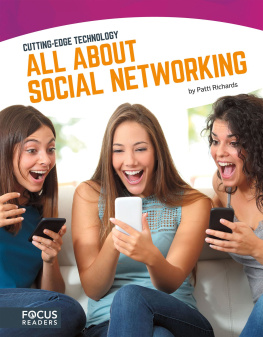
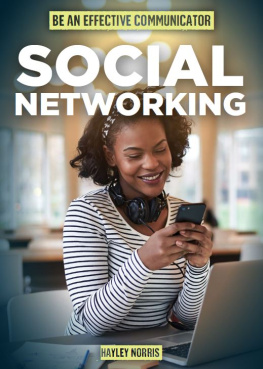
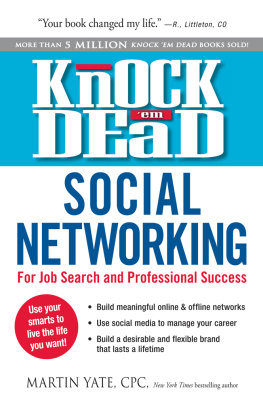
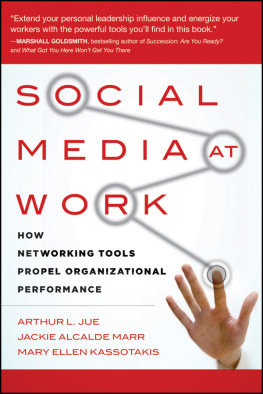

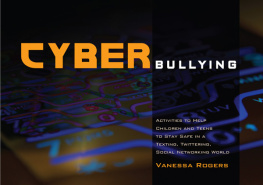
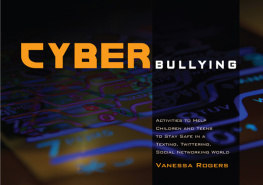
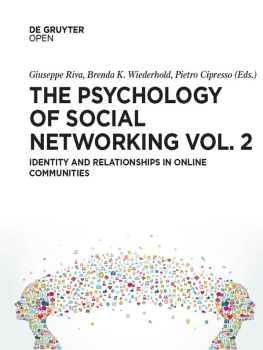
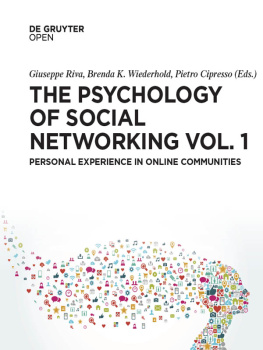

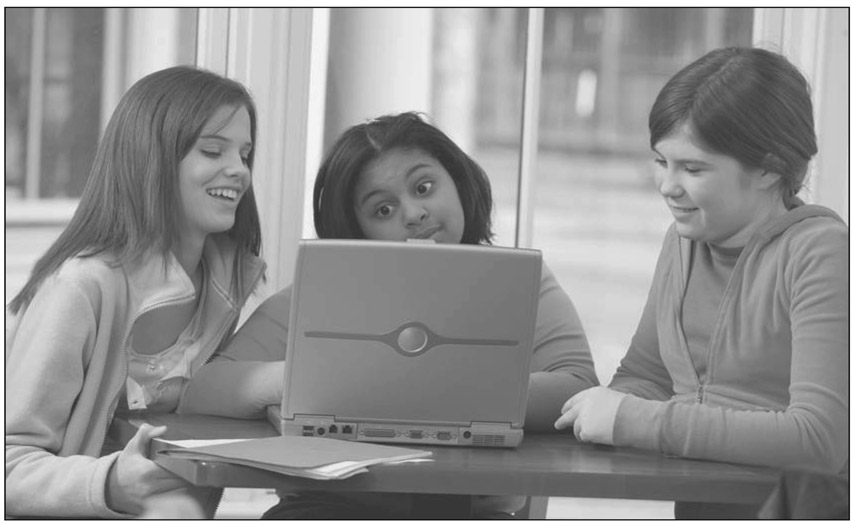
 Web 2.0
Web 2.0